State housing officials made the case for multifamily zoning in MBTA communities and explained the draft compliance guidelines during a January 12 webinar.
New zoning rules require MBTA communities to allow multifamily housing of a given density in an area within half a mile of an MBTA station or bus stop, or face loss of eligibility for some state grants. For Lincoln, the requirement would be 750 multifamily units (the minimum number for all MBTA communities). The changes are part of a $262 million economic development bond bill passed in January 2021.
That bill has several other provisions and funding allocations that aim to alleviate the housing shortage in Massachusetts, which has among the highest and fastest-growing housing costs in the nation, said Michael Kennealy, Housing and Economic Development Secretary. Although the population has risen steadily, only half the building permits statewide were issued from 1990 to 2020 as in the preceding 30-year period, he noted.
“This has placed an incredible burden on our households and families all over the state” and is making Massachusetts less competitive with other “innovation economy” states, Kennealy said. The new law “is simply good climate policy, good transit policy, good housing policy, and good local economic development policy.”
Gov. Baker has said his administration will take a “thoughtful approach in developing compliance criteria” and that those criteria will “recognize that a multifamily district that is reasonable in one city or town may not be reasonable in another,” said Chris Kluchman, Deputy Director of the Community Services Division of the state Department of Housing and Community Development.
The officials emphasized that the law is unrelated to Chapter 40B, which allows developers to bypass local zoning in communities that do not meet the state minimum for affordable housing stock. It is also not a production mandate; “the actual unit production will depend on many factors,” Kluchman said.
Clark Ziegler, Executive Director at the Massachusetts Housing Partnership, showed a slide with photos of “real-world examples of attractive multifamily housing,” including developments in Sudbury and Lexington (see slide deck below). “We need to show local residents that multifamily is not what they often fear, and that it can be knit into the fabric of any community to create vibrant neighborhoods,” he said.
Lincoln and other towns currently require a two-thirds majority at Town Meeting to approve changes to their zoning rules. The economic development bill reduces the voting approval threshold for approving certain zoning bylaw amendments (including creation of the multifamily district) and special permits to a simple majority. Nonetheless, the state realizes that “that can be a big lift,” so officials are offering technical assistance as well as grant programs for low- and moderate-income housing near public transit to help communities comply,” Ziegler said.
To be eligible for this year’s round of grants, towns must submit an online form by May 2. The public comment period for the draft guidelines closes on March 31. Once the final guidelines are established, MBTA communities must establish a compliant zoning district by 2023 or become ineligible for grants from the Housing Choice Initiative, the Local Capital Projects Fund, or the MassWorks infrastructure program.
The 750-unit mandate for Lincoln is “infeasible” and “jaw-dropping,” Planning Board Chair Margaret Olson said last week. After the webinar, she commented, “The most interesting part of that webinar is that the emphasis is on the zoning, not on what is feasible nor on housing production. That has some interesting implications that we will have to think about.”
Here are some of the slides from the January 2 webinar hosted by the Executive Office of Housing and Economic Development (click on a slide to see larger versions and forward/back buttons):
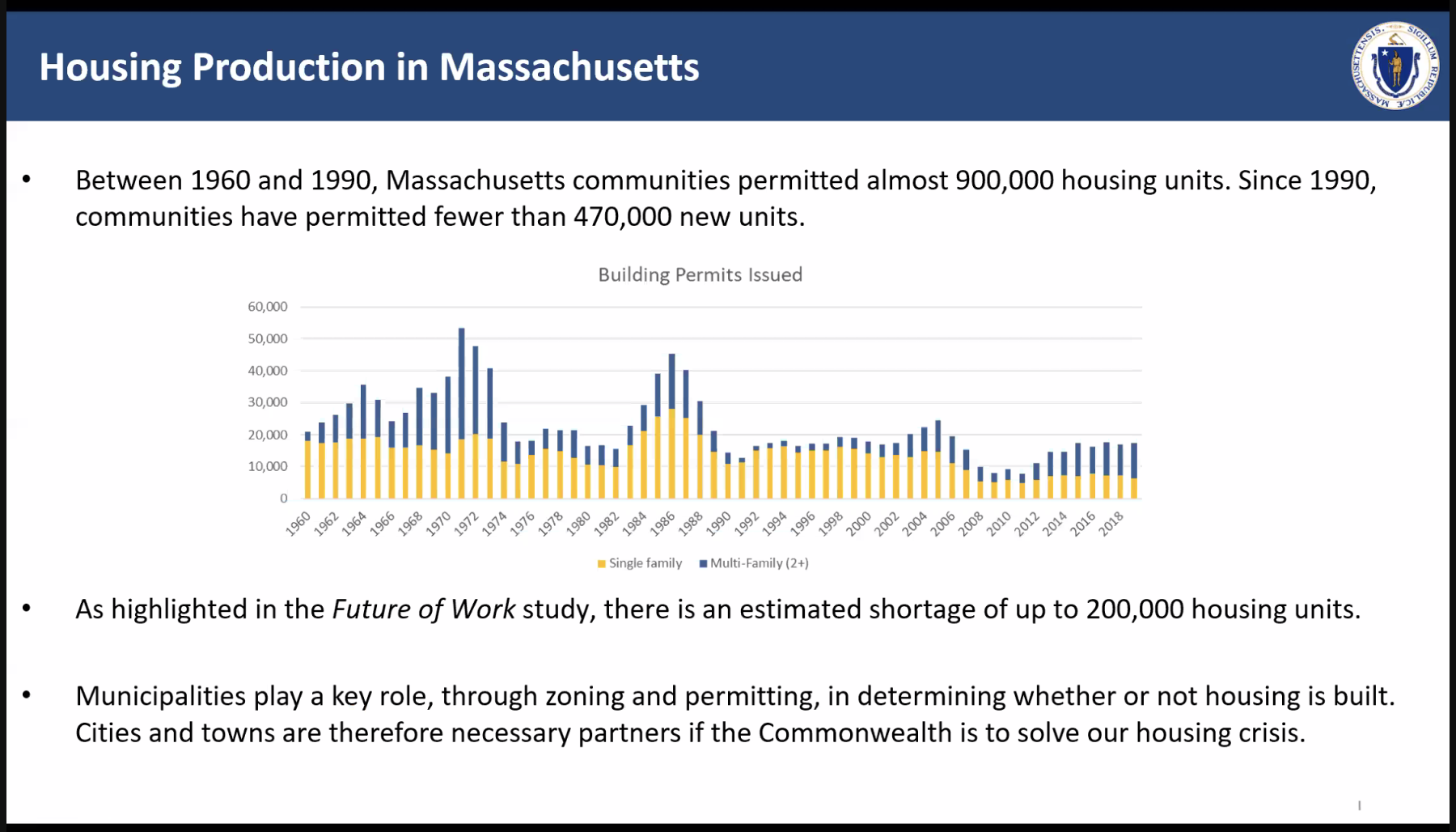
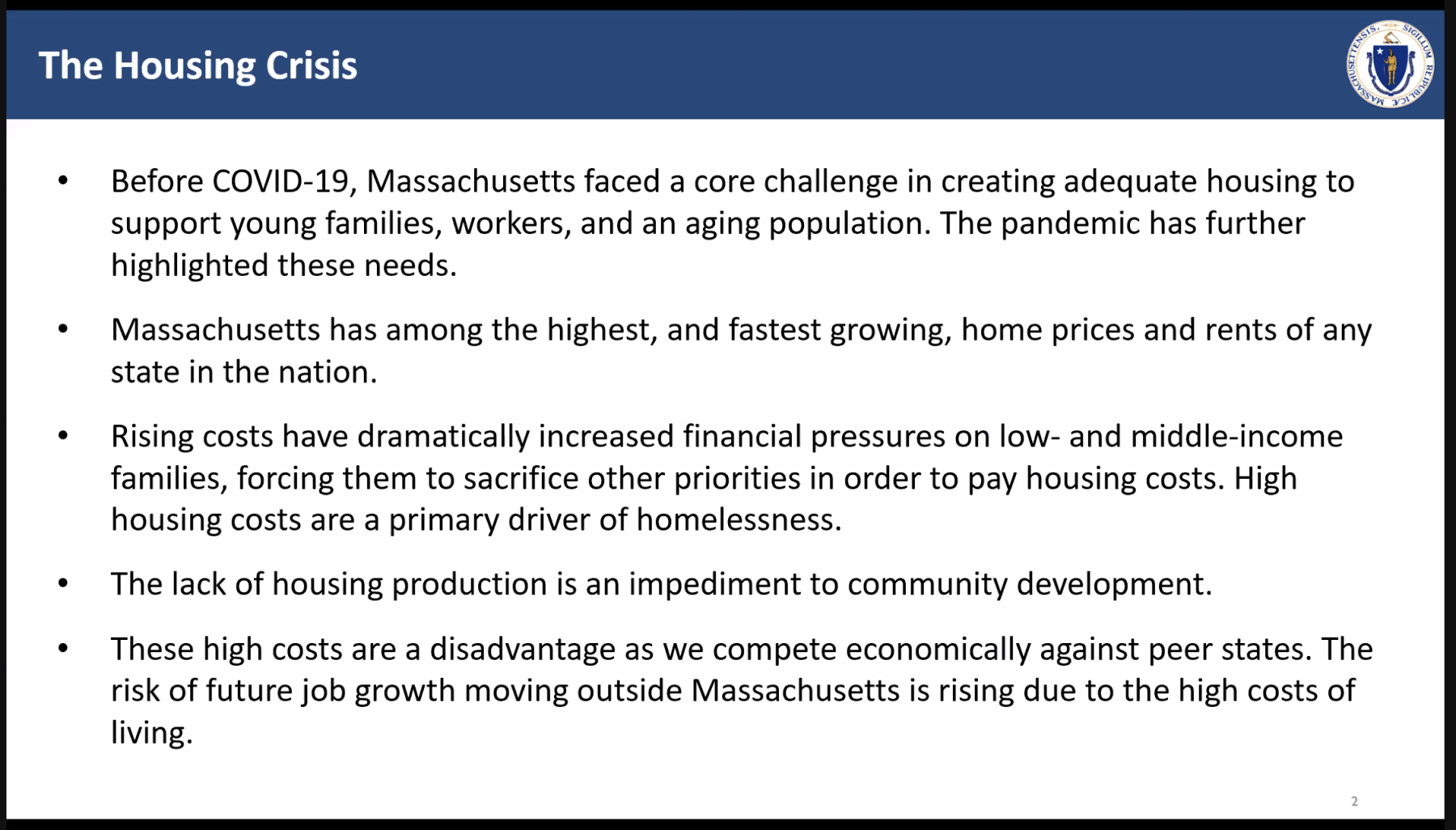
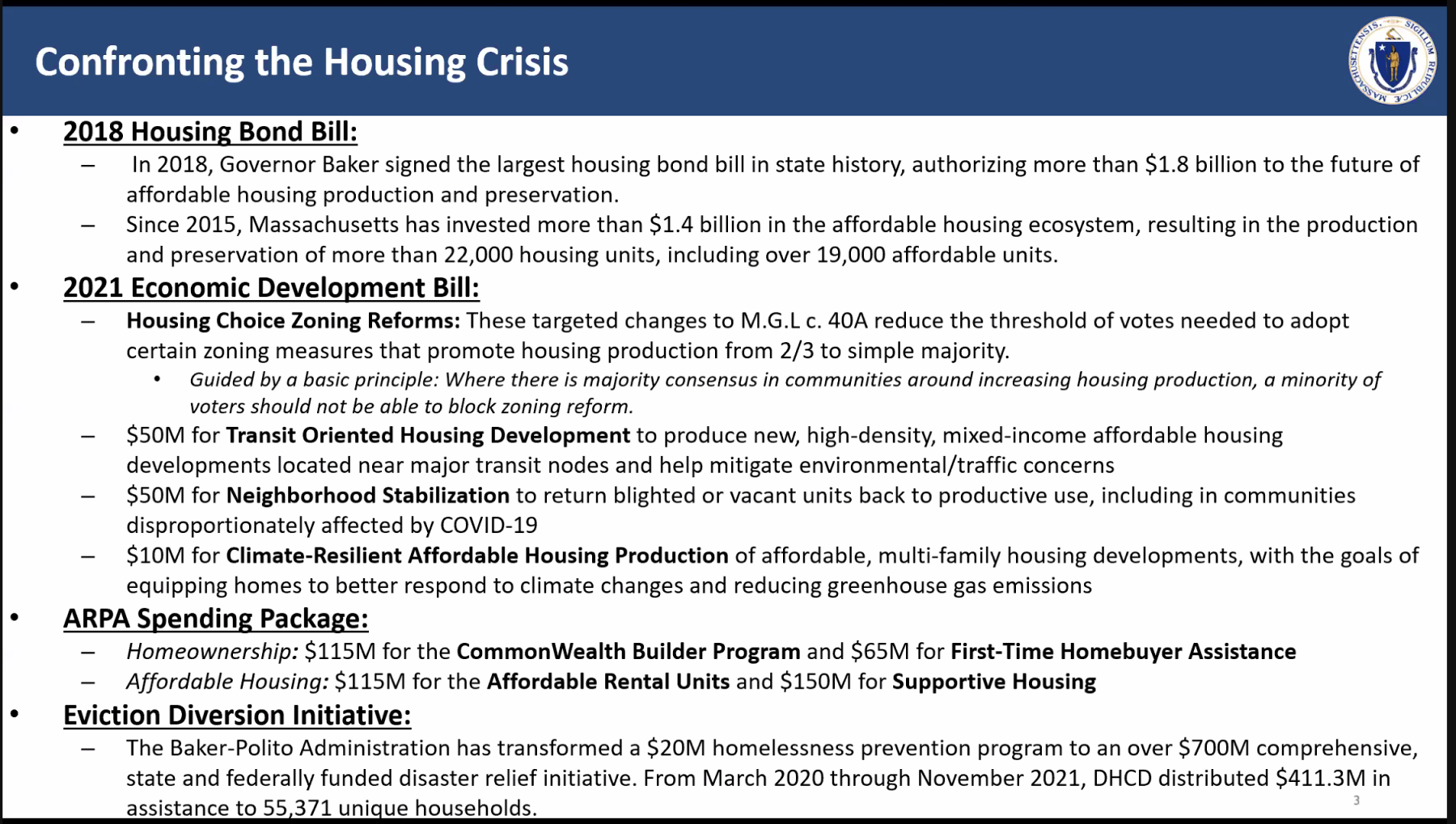
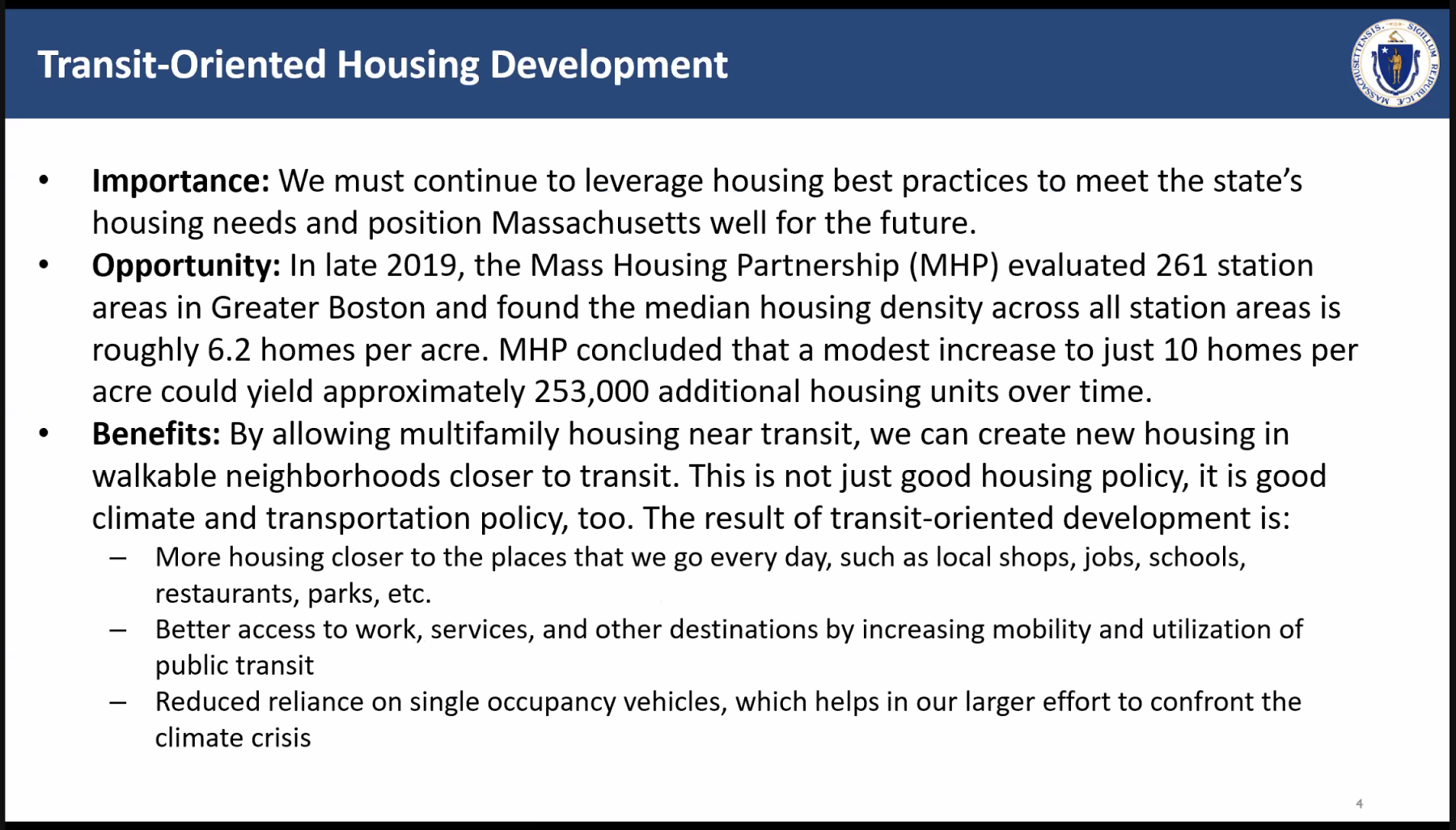
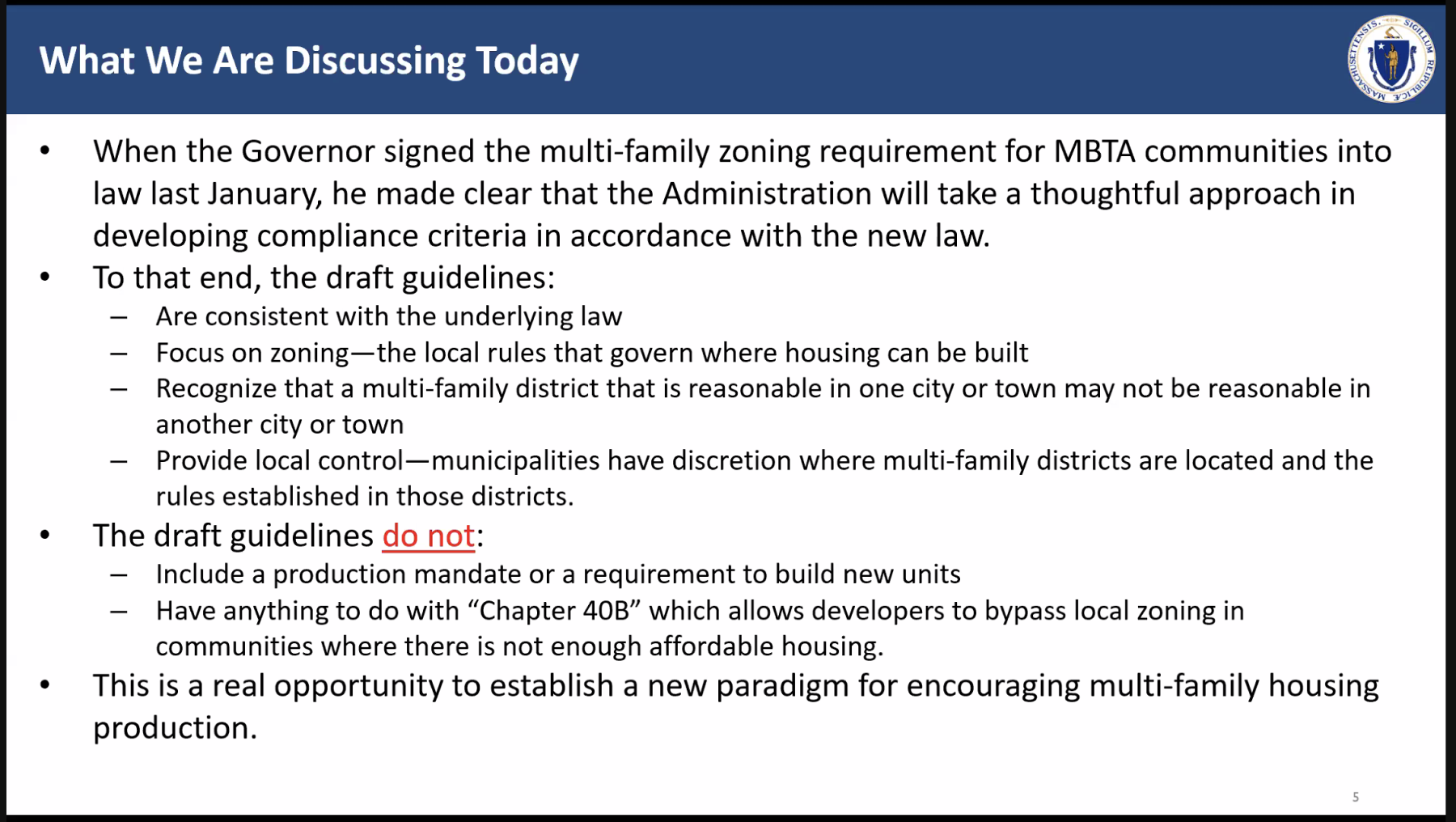
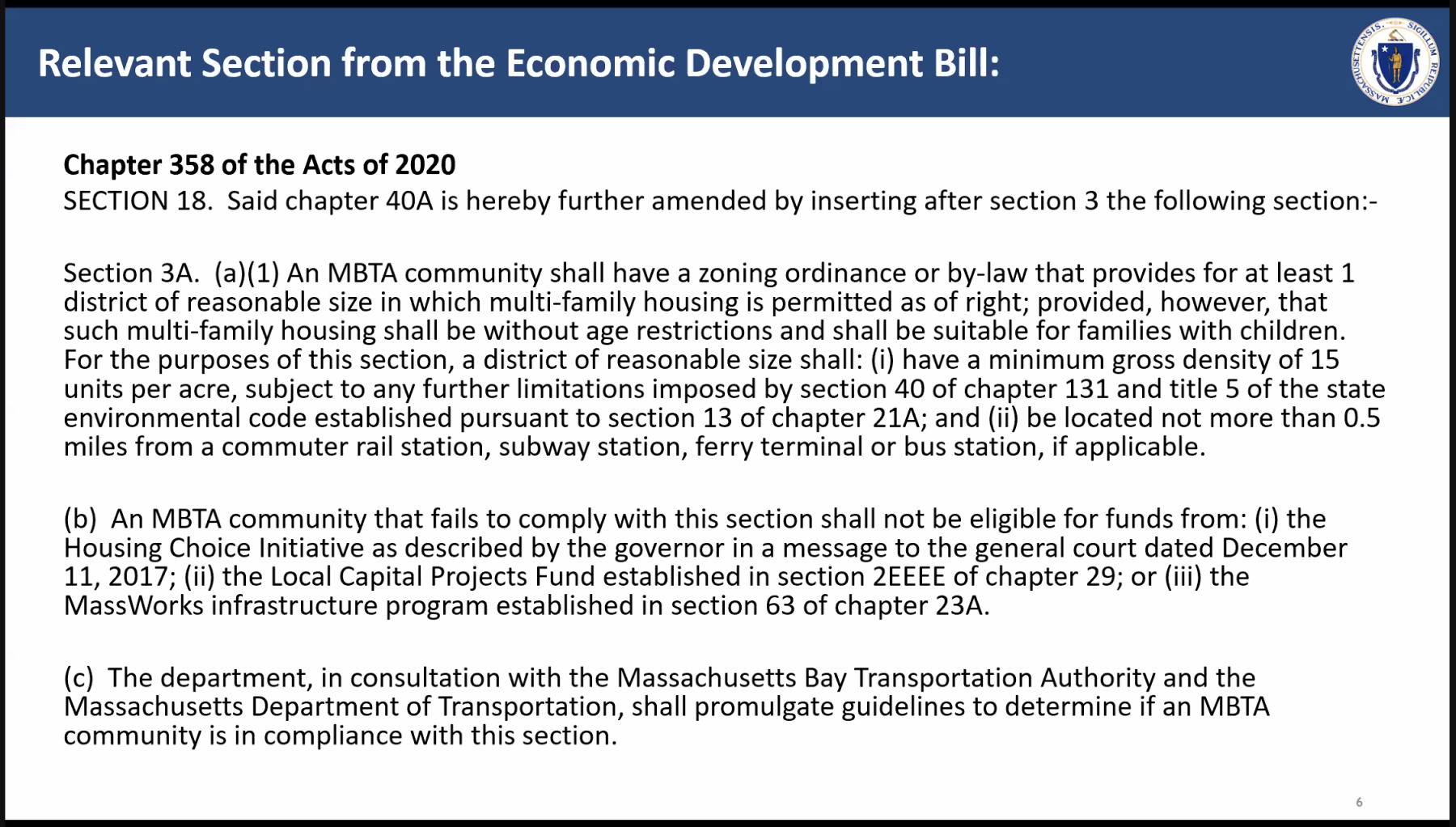
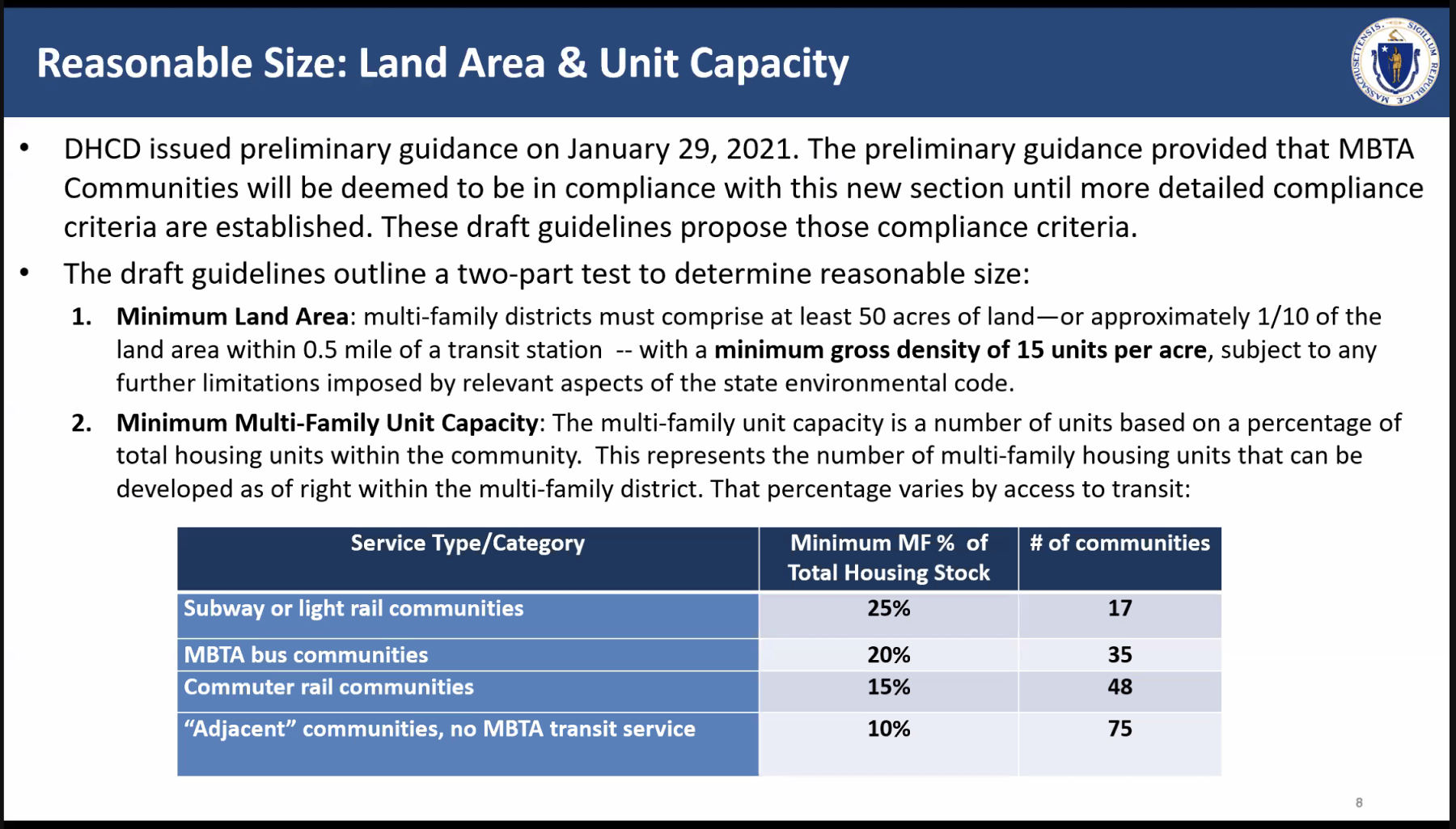
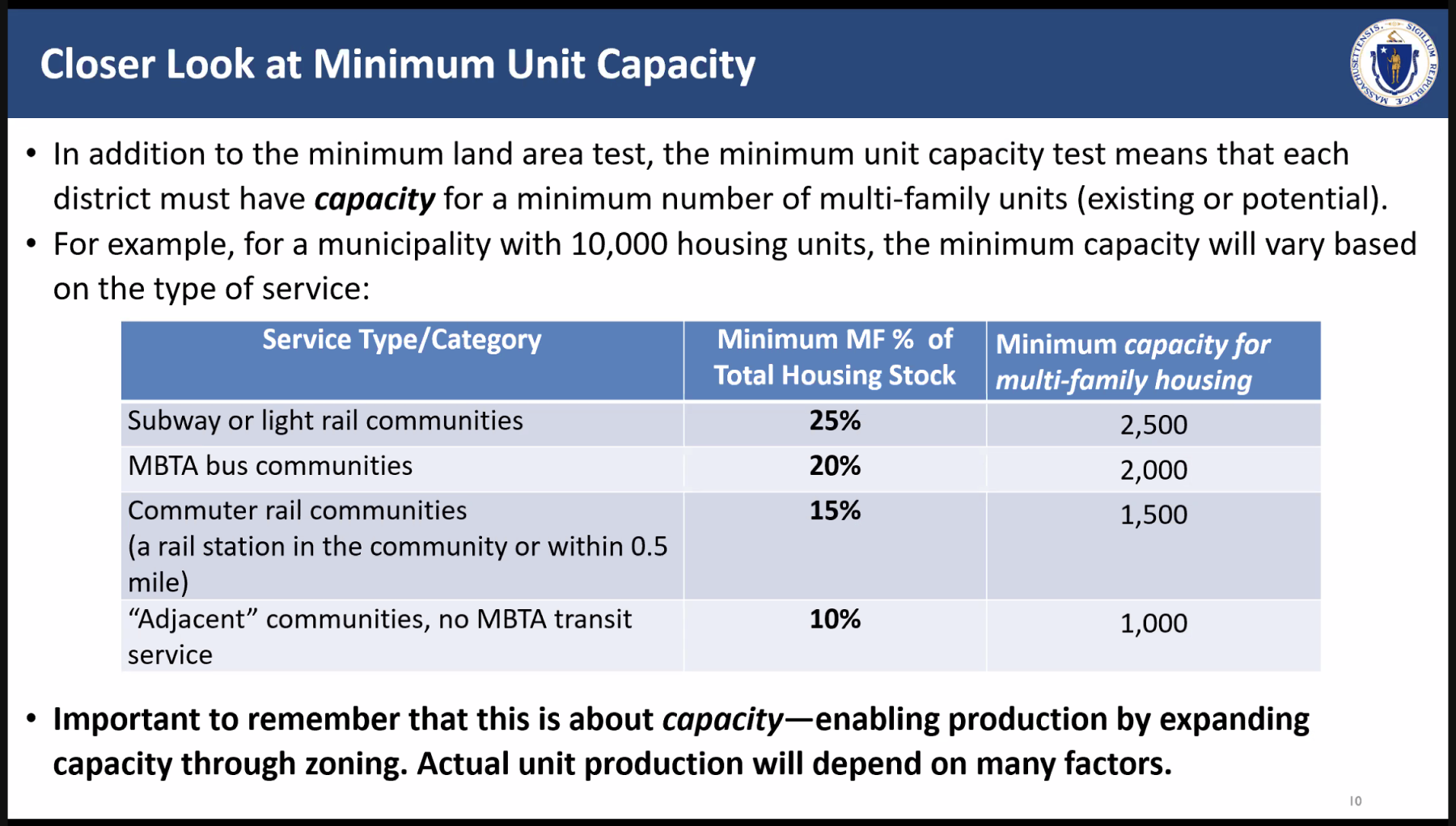
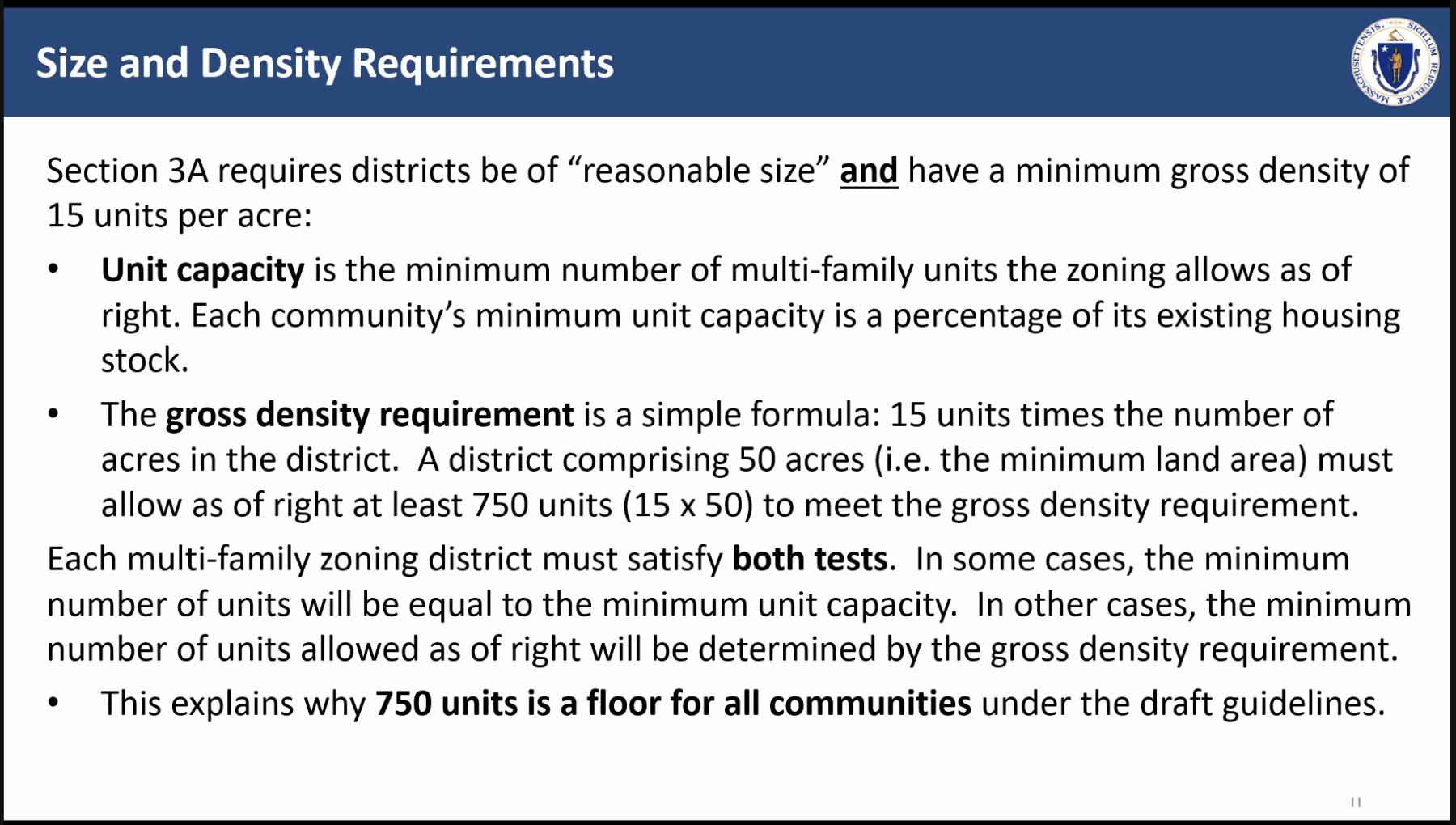
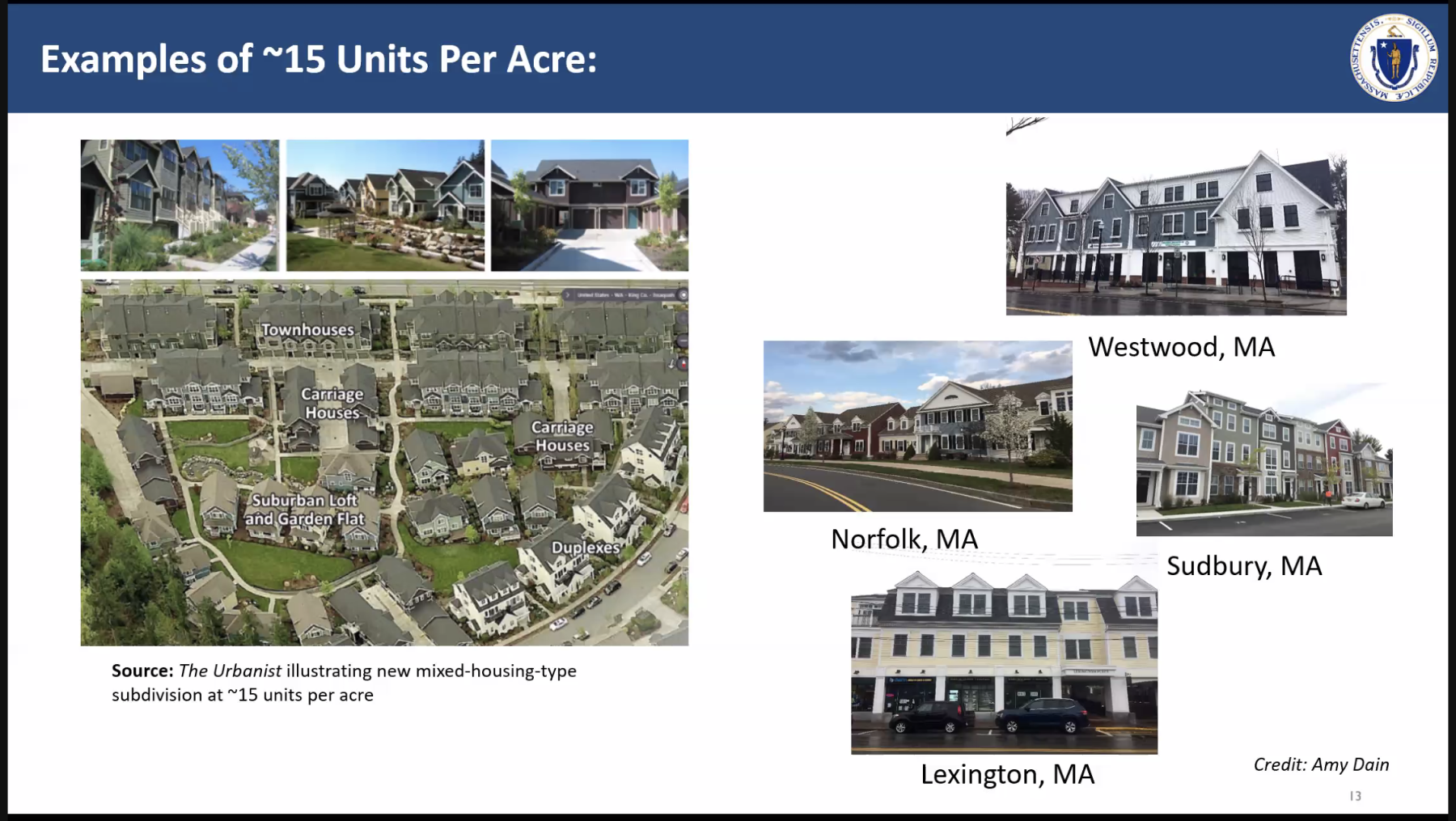
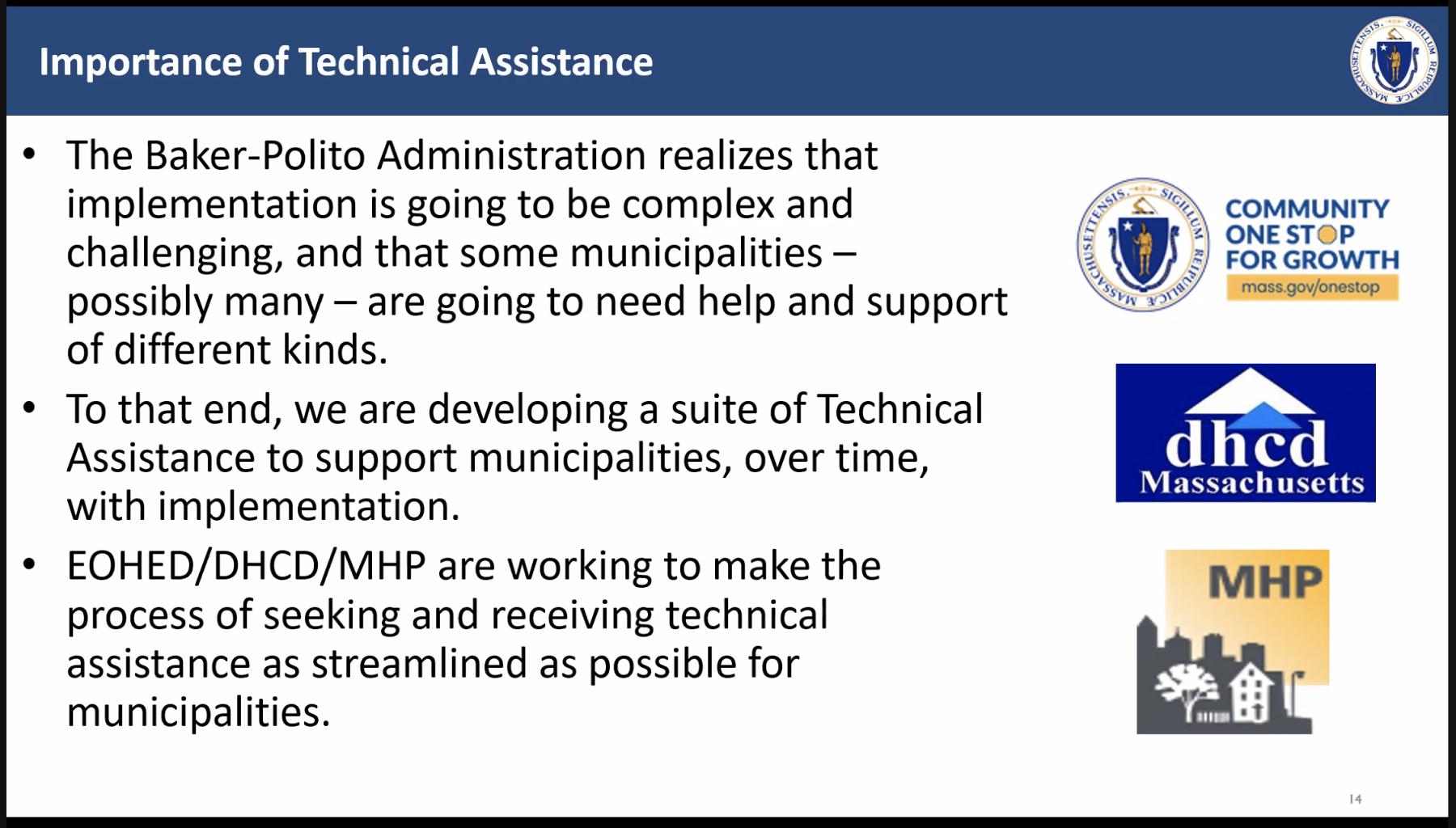
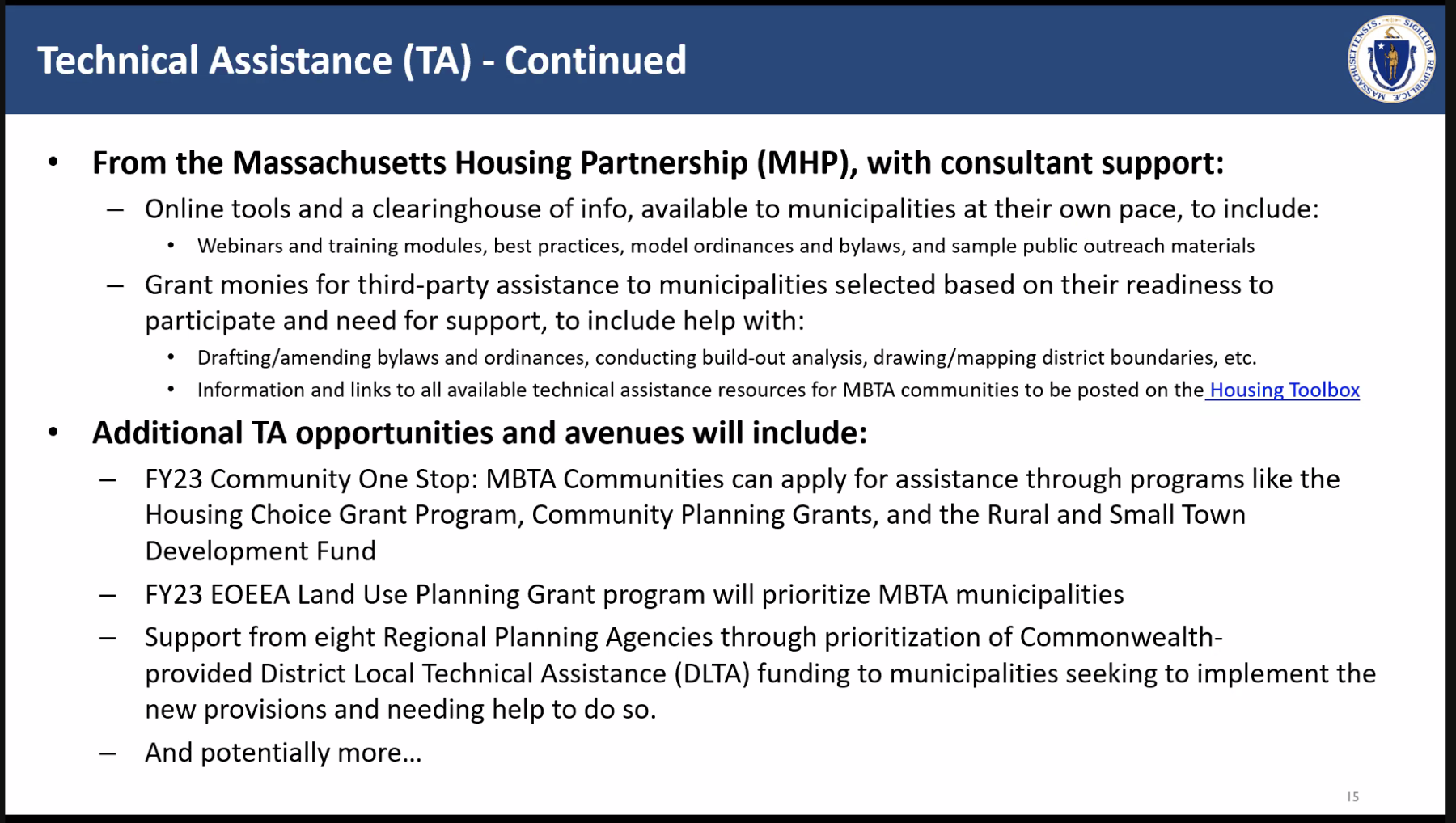
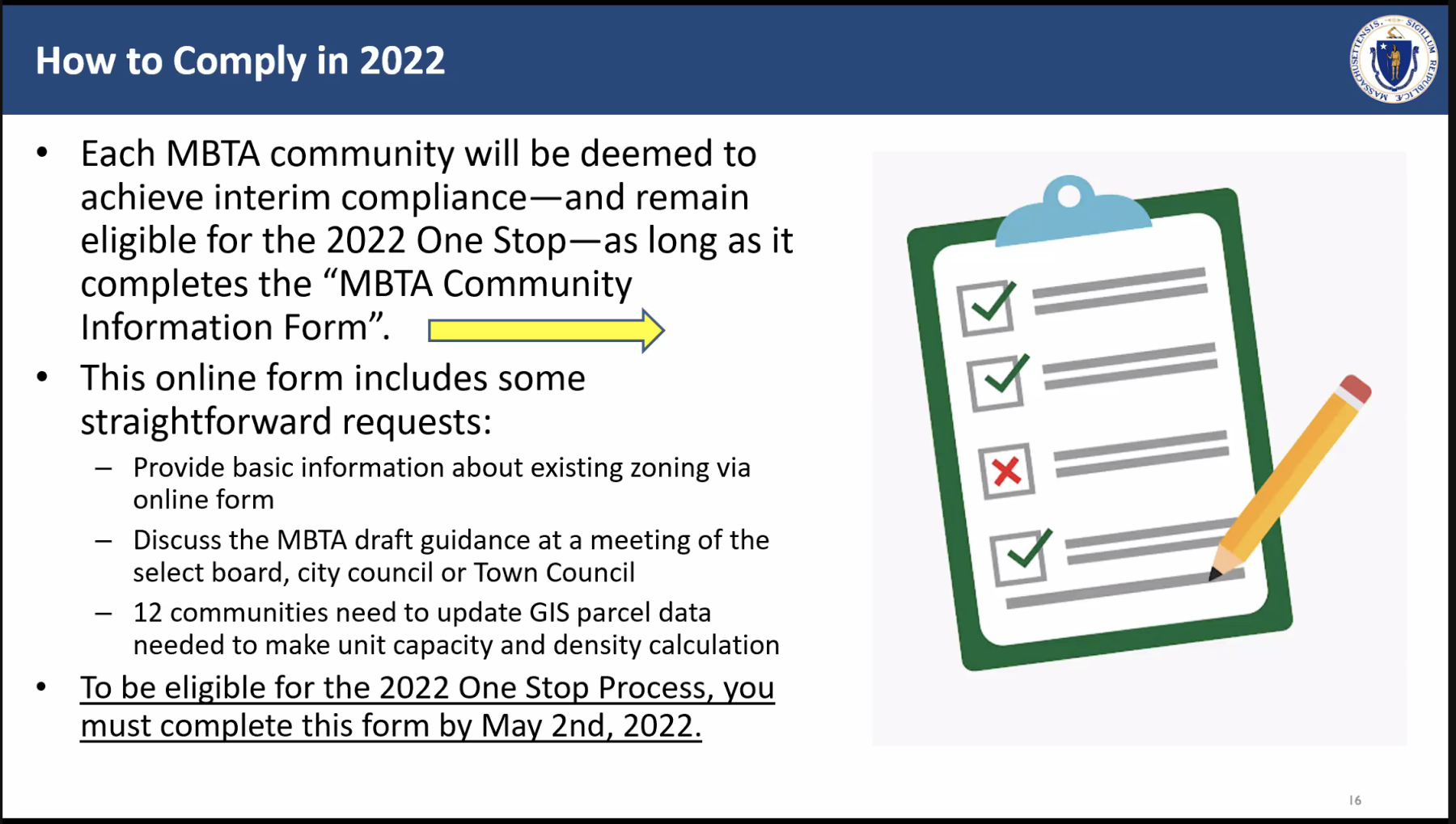
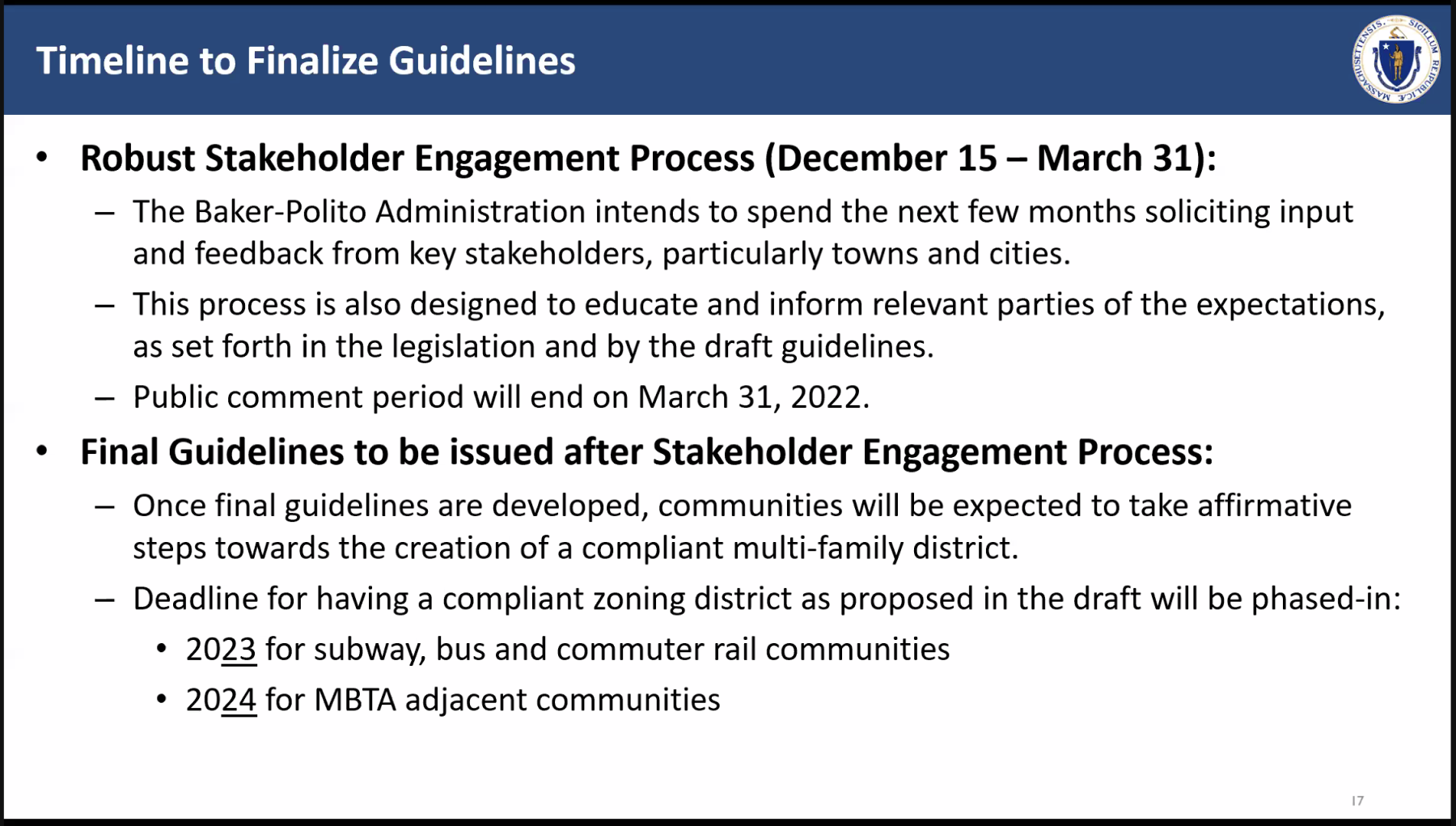
I was able to watch about half of the presentation which was not tremendously informative. Will it be made available for streaming? I do see that it appears that there is no requirement that any of the housing be low-income/affordable. I am also curious as to how much of the land in the 1/2 mile area is protected wetlands. And, as the deadline for public comments is coming rather quickly, how do we make such comments?
Scroll through this doc. A few pages in and you will see a map of all the communities subject to the state’s new recommended zoning changes.
It encompasses almost the entire state…not a realistic approach.
https://www.mass.gov/info-details/multi-family-zoning-requirement-for-mbta-communities
Certainly a good part of the state by population, but only about half by square mile. The map does not show the large portion of the state west of Ashburnham or Cape Cod. Imagine if the Cape and islands were subject to this rule! 🙂
How significant is it if Lincoln doesn’t meet the housing requirement? I How much funding from the sources (Housing Choice Initiative, the Local Capital Projects Fund, or the MassWorks infrastructure program) does Lincoln get or is likely to get in the future?